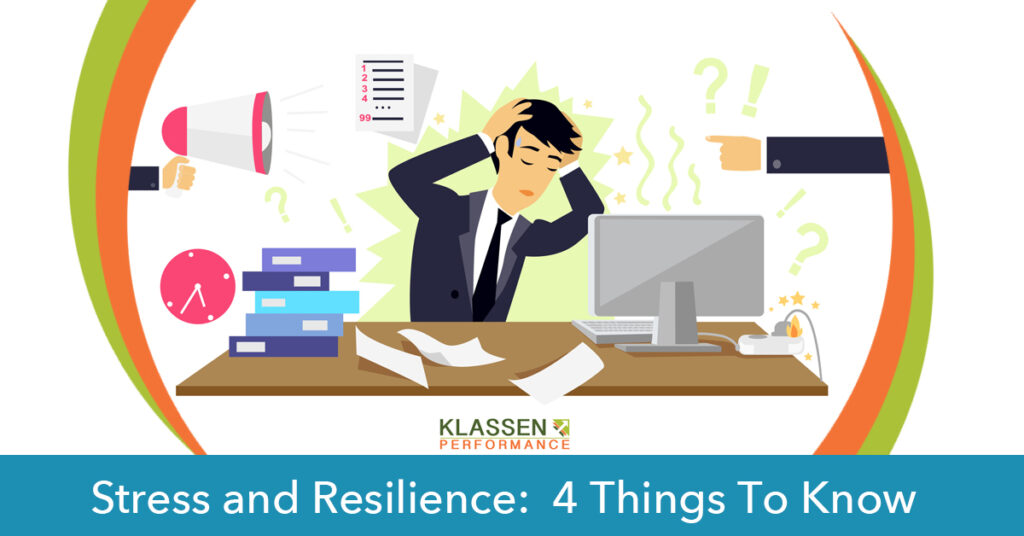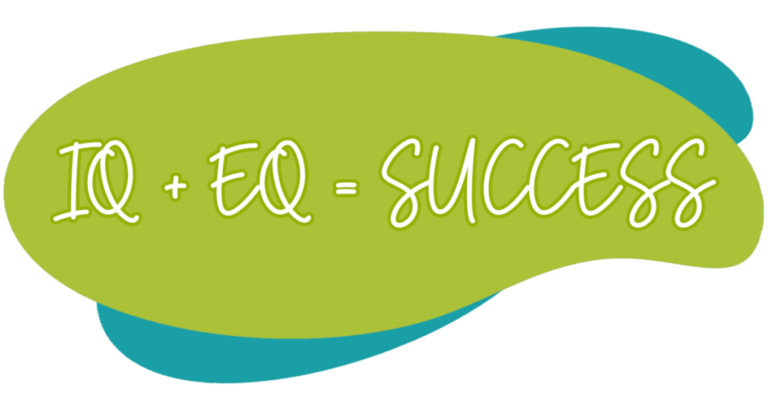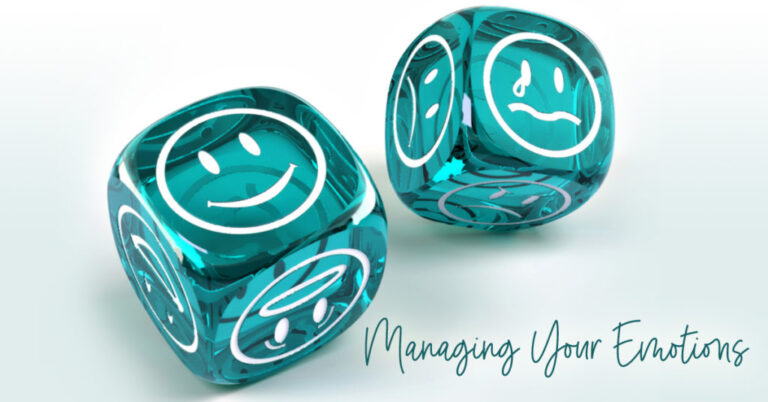
Like it or not, stress is part of our lives. We work in a world where people feel overwhelmed by long hours, struggle to keep up with the pace of change, and cope with the constant threat of down-sizing. Most people I talk with say they feel pressure to perform at higher and higher levels. Anyone hoping for a magic formula for getting rid of stress will be disappointed because there isn’t one.
There are, however, proven strategies that you can use to manage your stress and keep your performance consistently high even in the most challenging circumstances. Developing resilience is a significant part of our course, Increasing Your Emotional Intelligence. Four key things to know about stress to help you build resilience are below. Each one of them will help you manage stress and bounce back faster to keep your performance high.
1. Know your optimal level
We tend to perceive stress as negative, but that isn’t always the case. At the right level, stress can work for us as a catalyst for high performance. The impact of stress on a person’s performance can be illustrated by a bell curve. The levels of stress on the left side of the highest point provide us with energy and focus that help us perform. Low levels of stress can lead to complacency or low performance. The highest point on the graph is our optimal level of stress. This is the level where you perform at your best. You’re energized and “in the zone”. We’ve all been there. The levels of stress to the right of that optimal level begin to hurt performance again. It is at these levels that we start to make mistakes, forget things, struggle to express ourselves effectively, etc. Chronic stress at these levels can seriously impact health over time. That’s why it is important to know your optimal level. When you can plot your stress level on this curve at different times of the day, you can manage it more effectively. There are times you may need to increase the positive stress and times you’ll need to decrease the negative stress to get to that optimal level. The only way to do that is to know your optimal level.
2. Know your signs
We all experience the effects of stress differently. Some people get headaches, some people can’t sleep, and others get snippy with co-workers. Although many people think they know when they’re experiencing stress, a study by Bradberry and Greeves found that only 36 percent of people tested were able to accurately identify their emotions as they experienced them. Thinking through your physical, emotional, and psychological signs will help you identify and then manage your stress more effectively. Know your signs of stress.
3. Know your plan
You can’t passively manage your stress. It’s important to have a clear plan and make a conscious effort to execute that plan. Emotionally intelligent people have a plan for managing stress in the moment, during short breaks, after work, on weekends, and annually. Breathing, exercises, meditation, vacations, and a 5- minute walk, are all examples of strategies you can add to your plan. If you don’t plan to manage your stress, it will manage you. People with clear simple strategies to manage stress are able to implement those plans quickly and bounce back from setbacks faster than those who don’t plan. Make sure you know your plan.
4. Know you can bounce back
Optimistic people believe that they will find a way out of even the most difficult circumstances. They understand that setbacks are temporary and believe their actions will impact the future. They develop effective coping strategies and supportive personal and professional networks both inside and outside of work, which helps protect them from the negative impact of stress. The good news is that optimism can be learned. The sooner you make a conscious effort to find the good in circumstances or take steps to move through a negative situation into a more positive situation, you’ll find your stress decreasing as you begin to bounce back. It is important to know that you can bounce back.
For better or worse, stress is part of our lives every day. We have more control over it than most people think. Knowing your optimal level, your plan, your symptoms, and that you can bounce back are a great start to managing it and developing the resilience you need to get through any circumstance.







